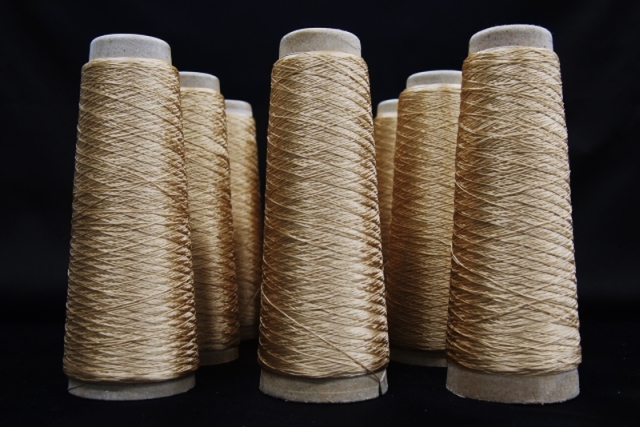[leadin]A thread stronger than steel can be spun into next-generation garments with the properties of a spider’s silk.[/leadin]

That concept fueled the development of QMONOS, the world’s first successfully-produced “synthetic spider silk” material. It is being touted as “the beginning of a new paradigm in sports apparel.”
QMONOS, made by the brand Spiber, is a protein-based, synthetic fiber that mimics the composition of spiderweb. And while Spiber’s products are still in their infancy as materials are not widely available, The North Face has already come up with a concept jacket made of the material.
Details are thin on the jacket, called the Moon Parka. It was announced in October by Goldwin Inc., which markets the brand in Japan. According to Goldwin:
“In 2015, Spiber and Goldwin together launched a joint research project working toward the practical application of next-generation protein materials. The Moon Parka’s successful prototyping is based on The North Face’s top-of-the-line Antarctica Parka. This achievement marks the world’s first successful use of synthetic spider silk materials on an actual manufacturing line, a giant leap toward fully harnessing the power of next-generation protein materials.”
Spiber: Thread Based On Spiderweb
Spider silk is remarkably strong. Spiber claims it is “340 times tougher than steel.” The silk is made from proteins that are the backbone of the brand’s past 11 years of research.

Spiber notes through combining 20 types of amino acids it can produce “endless variations of materials.”
Synthetic spider silk materials offer potential for sustainability. They are comprised of proteins that are created through a microbial fermentation process that does not depend on petroleum (unlike materials such as polyester and nylon).
The completely new type of material has high mechanical strength and elasticity. Spiber is the first company to successfully produce these bio-materials on a commercial scale.

The brand claims to have synthesized more than 600 types of original proteins, which will in the near future be used across industries in place of metals, glass and plastics.
Spiber explains the process and material in the video below.
The North Face Moon Parka
So far, The North Face in North America has been quiet on the project and did not immediately respond to a request for more information. But according to Goldwin, the Moon Jacket will be based, as noted above, on the brand’s Antarctica Parka model.
According to Goldwin, during the prototyping process, the company chose the protein types in its library that were “best suited to crafting the outer material and embroidery thread.” It then conducted trials to find the best threads for the spinning, twisting, weaving, and sewing processes required to make a coat.
Notes the company, “The Moon Parka is the world’s first piece of clothing made from artificial protein material, and the prototyping process gave us great insight into the challenges that we still face on the road to mass production.”
Goldwin says the parka will be released in 2016 in Japan.







